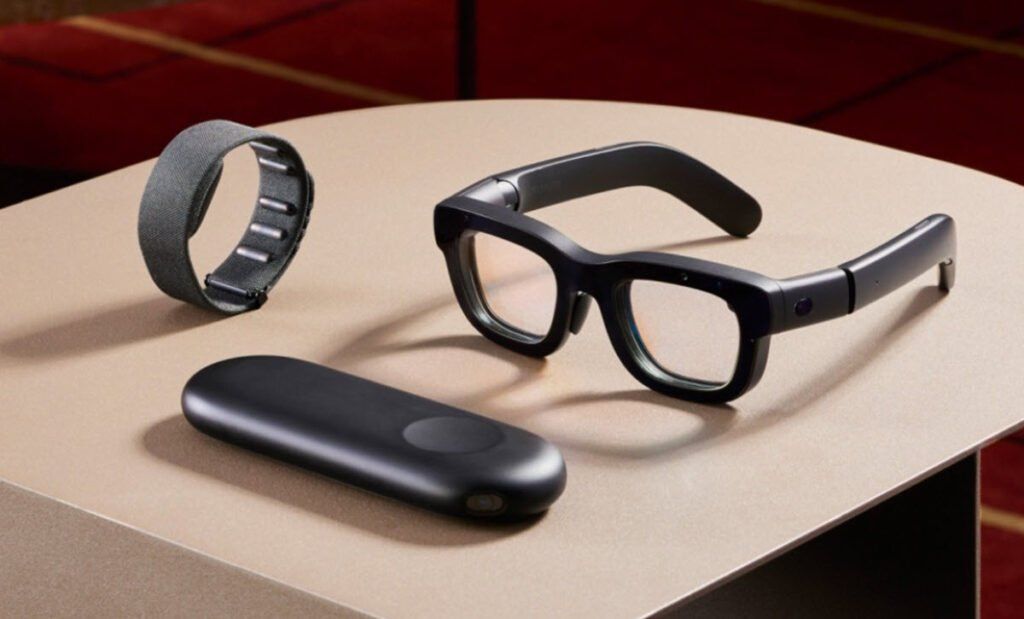Mark Zuckerberg’s latest venture into augmented reality (AR) was a pair of wearables that he announced at the Meta Connect 2024 event: the Meta Orion AR glasses. While the tech community and futurists were thrilled by the demonstration, the general consensus seems to be that these glasses, despite their innovative technology, might not make it to the average consumer’s shopping list anytime soon.
ALSO READ: How MKBHD ‘s new Wallpaper app called Panels missed the mark
The Meta Orion glasses, which were revealed not just as a piece of tech but as a significant leap towards what Meta envisions as the ‘metaverse’, are indeed impressive. Featuring advanced AR capabilities powered by AI, these glasses promise to blend digital information seamlessly with the physical world. However, the excitement was tempered by the stark realization of their current impracticality for mass consumption.
Firstly, let’s talk price. While exact figures weren’t disclosed, industry speculation based on the tech’s complexity suggests that each pair could cost Meta up to $10,000 to produce but not for the public to buy, unlike the Apple Vision Pro which costs $3,500. The Orion AR glasses are very expensive in comparison but their price isn’t just about the materials or manufacturing; it’s the culmination of cutting-edge technology, AI integration, and the sheer R&D costs that Meta’s Reality Labs has shouldered, amounting to billions in losses over the years. For the average consumer, even at a significantly reduced retail price, these glasses would remain a luxury, not a necessity.
The design of the Orion AR glasses also plays a role in their unlikelihood of widespread adoption. Despite advancements, the aesthetic of AR glasses still leans towards the bulky, reminiscent more of early 2010s fashion faux pas than today’s sleek tech wearables. While functionality might be at an all-time high, style, and comfort, which are crucial for everyday wear, seem to lag. The glasses, as demonstrated, looked more like a prototype meant for tech enthusiasts rather than a fashion-forward accessory for the masses.
Privacy concerns, which have haunted smart glasses since Google Glass, continue to be a significant barrier. While Meta has addressed some of these issues with features like LED lights to indicate recording, the general public’s wariness about being filmed or tracked without consent remains. This hesitation isn’t just about legal implications but also about social norms and comfort around technology that blurs the lines between public and private spaces.

Functionality, while groundbreaking, also brings its own set of challenges. The integration of AR into daily life requires not just the glasses but an ecosystem of apps, services, and infrastructure that isn’t fully developed. While Meta’s Orion AR glasses could theoretically do everything from translating signs in real-time to offering navigation without looking at a phone, the practicality of navigating this tech in everyday scenarios, especially in less tech-savvy environments, poses significant hurdles.
Moreover, the battery life, processing power, and the need for constant connectivity (for cloud computing aspects) add layers of complexity. These glasses aren’t standalone devices but rather nodes in a broader network, which might not appeal to users looking for simplicity in their tech interactions.
The demonstration event itself, while showcasing the tech, inadvertently highlighted another issue: the disconnect between tech elites and the average consumer. While Mark Zuckerberg and tech pundits could rave about the potential, the average viewer might have been left wondering about the practical, day-to-day benefits over their current smartphone or even simpler, less intrusive tech solutions.
The sentiment around Meta’s Orion AR glasses, therefore, leans towards them being more of a tech showcase rather than a consumer product. They represent a vision of the future, a prototype of what might one day become as common as smartphones, but for now, they’re a glimpse into a tech future that remains just out of reach for most. In essence, Meta’s Orion AR glasses are a beacon of what’s possible, not what’s probable in the immediate future for consumer tech. They’re an expensive, somewhat invasive, and currently impractical solution looking for problems to solve in a market that might not yet see the need beyond novelty or niche applications. While they might never be bought by the masses, they serve as a catalyst for discussion, innovation, and perhaps, the next iteration of tech that might eventually find its way into our daily lives in a more accessible, less obtrusive form.

